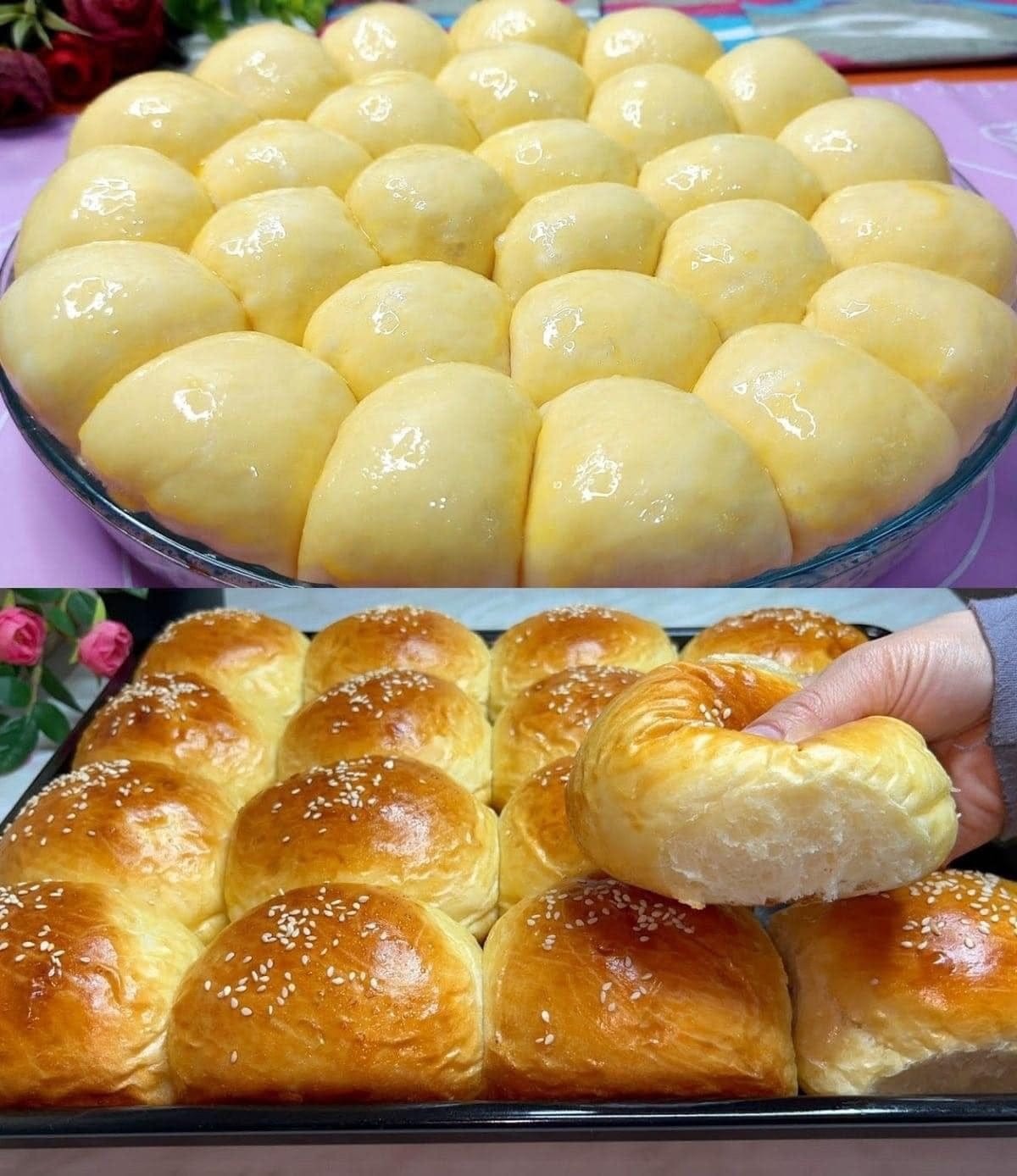Put the heavy cream, milk, egg, sugar, cake flour, bread flour, yeast, and salt into the bowl of a stand mixer with a dough hook attachment in this order. With the mixer set to “stir,” knead the dough for fifteen minutes, stopping regularly to push it together. Keep adding flour until the dough separates from the bowl if it is still clinging to the edges after adding a tablespoon or two of flour. It shouldn’t follow the edges; it should follow the basin’s bottom. If you’re kneading with your hands, add five to ten minutes to the time.
The dough should then be covered with a wet towel and left in a warm environment until it has doubled in size—which should take one to two hours. Place a covered microwave cup of just boiling water next to the dough while it proofs.
While this is going on, butter coat two baking pans so that each side is covered. One loaf pan, two 9-inch (23-centimeter) round pans, or one regular loaf pan will work.
Once the dough has doubled in bulk, return it to the mixer and mix for another five minutes to eliminate any last air bubbles. Dump the dough onto a board dusted with flour, then split half. Form each half into a rough rectangle before putting it in the loaf pan. Cut each rectangle crosswise into three roughly equal pieces. Another way is to divide the dough in half and then roll out each half into eight equal pieces. These might then be fashioned into balls or threads fit for twisting into buns. Once shaped, arrange these balls in a circular pan. Two loaves get sixteen rolls; one loaf + eight rolls gets sixteen rolls. After shaping, let the dough prove, covered, for one more hour.
Adjust an oven rack in the center and preheat to 350°F/175°C. Over the rising dough, brush egg wash. Roast until a golden color shows, about twenty-three to twenty-five minutes. To provide shine and sweetness, brush the cooked bread with sugar water. Then remove it from the oven.
ADVERTISEMENT

